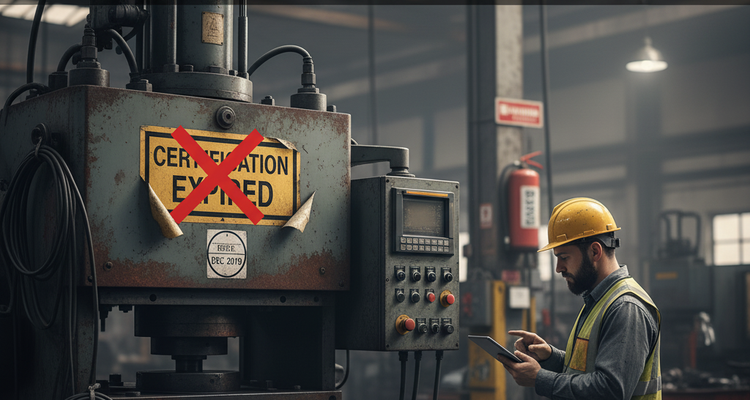
How Expired Equipment and Safety Certifications Impact Manufacturing Operations
Manufacturing and workshop businesses face strict regulations around equipment safety, employee certifications, and environmental compliance. Missing an inspection or renewal can lead to production halts, regulatory fines, and workplace accidents, affecting both profitability and reputation.
Key Risks in Manufacturing
Equipment Safety Inspections: Machines and tools require regular inspections and certifications. Missing these can halt production or result in violations during audits.
Environmental Compliance: Waste disposal permits, emission standards, and environmental certifications must remain current. Failure can attract hefty fines or operational restrictions.
Employee Certifications: Operators must maintain safety and technical certifications. Lapses may result in legal liability or insurance issues.
Supply Chain Impact: Non-compliance can disrupt partnerships or delay product delivery to clients.
Mitigation Strategies
- Maintain a centralized digital dashboard for inspections, certifications, and permits.
- Automate alerts for upcoming expiry dates.
- Assign team members responsibility for checking compliance regularly.
- Conduct periodic audits to ensure all documents are up-to-date.
How ExpiryEdge Supports Manufacturers
Platforms like ExpiryEdge provide a single compliance management dashboard. Manufacturing firms can track equipment inspections, certifications, and regulatory permits with automated alerts. This ensures uninterrupted production and reduces the risk of costly fines.
Benefits of Proactive Tracking
- Reduced Downtime: Ensure machines are certified and staff are qualified, minimizing operational disruptions.
- Risk Mitigation: Avoid fines, penalties, and safety violations.
- Improved Efficiency: Staff spend less time manually tracking compliance.
- Better Reporting: Easily generate compliance reports for audits or management review.
By adopting a systematic approach to compliance management, manufacturers protect operations, employees, and clients, ensuring smoother workflows and stronger business credibility.
